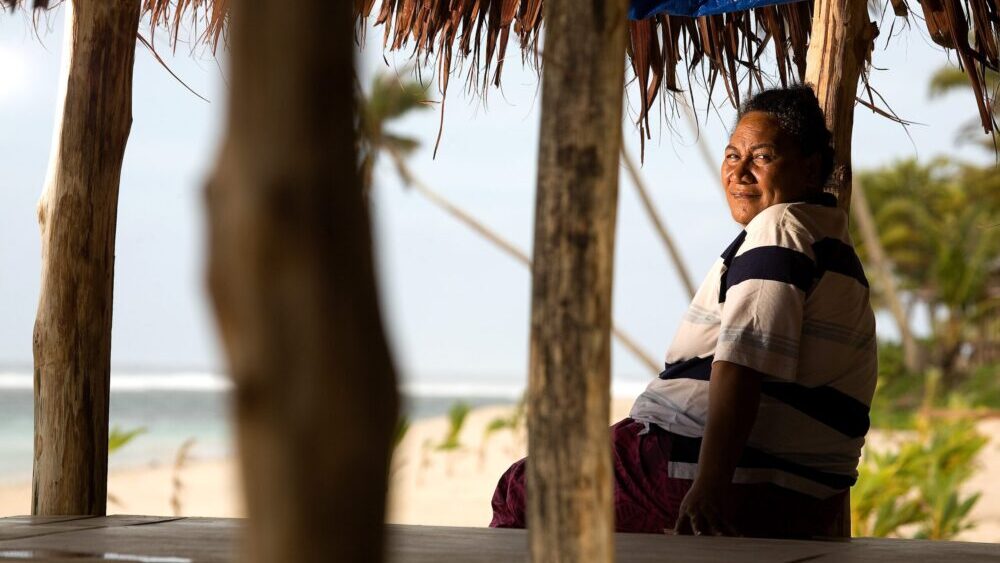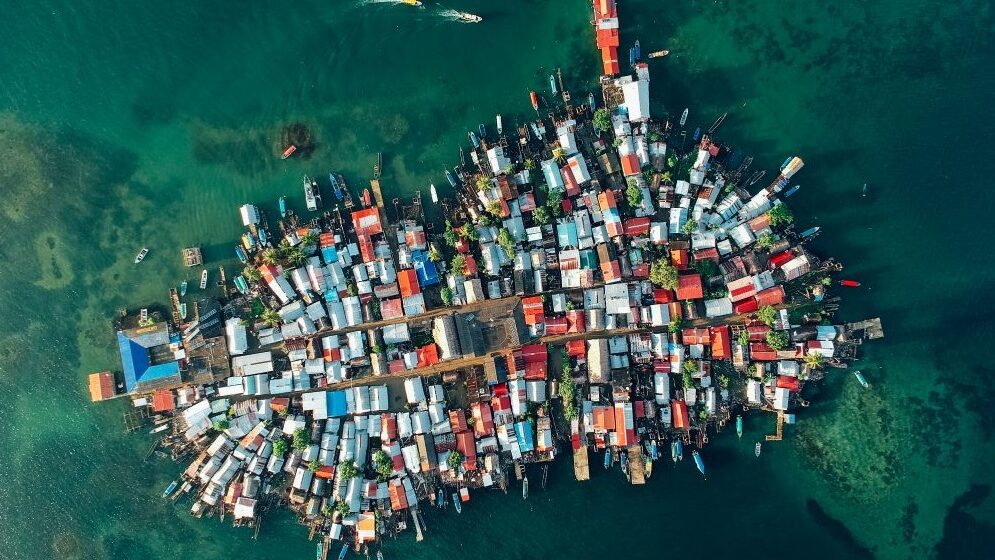Reporting Back | Disaster Displacement and the 2022 Global Platform for Disaster Risk Reduction
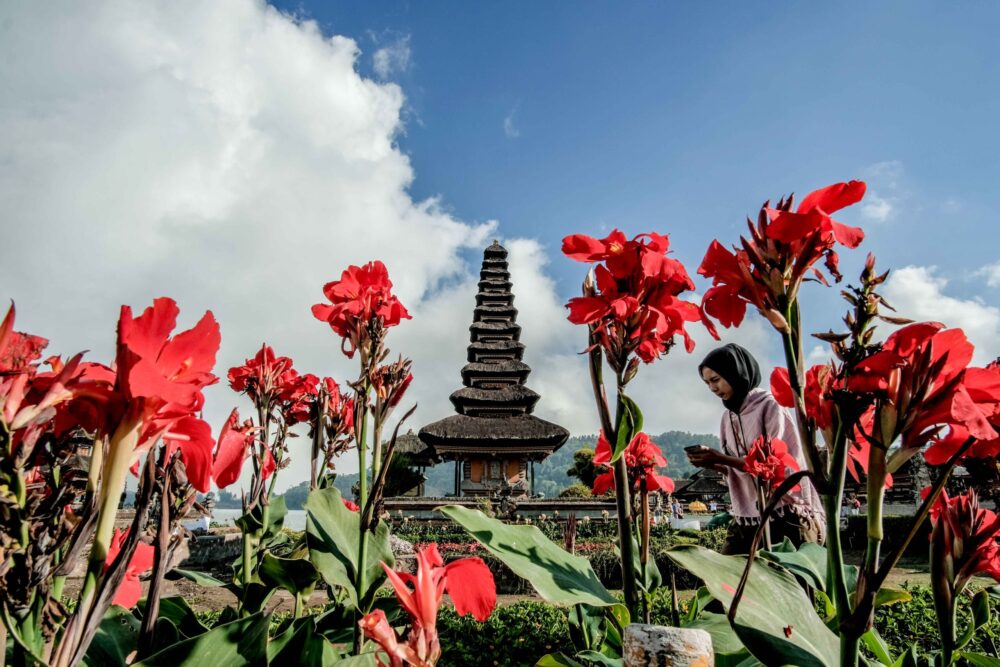
The Platform on Disaster Displacement engaged at the 2022 Global Platform for Disaster Risk Reduction from 23-28 May 2022 in Bali, Indonesia, with participation of the Secretariat, Steering Group and Advisory Committee. Together with a number of partners, the PDD participated in several events including with artists, and promoted its Key Messages in different sessions.
The seventh Global Platform for DRR was held under the topic “From Risk to Resilience: Towards Sustainable Development for All in a COVID-19 Transformed World.” It was the first Global Platform held since the COVID-pandemic and followed strict health regulations, attracting over 4000 delegations from over 180 countries.
It was the first Global Platform for DRR to gather input for the upcoming Sendai Framework Midterm Review and, through the performance of a poem by artist Emi Mahmoud, from the first moments onwards, shed light on the plight and vulnerabilities of persons affected by disasters including through displacement.
Key Messages
The PDD Secretariat, Steering Group and Advisory Committee had jointly prepared a Policy Brief and Key Messages, which was presented, among others, at a Stakeholder Engagement Mechanism ‘Displacement Constituency Session’ on 24 May and a Journalist Briefing on 25 May.
States and other stakeholders are called upon to:
- Include provisions to address disaster displacement and other forms of human mobility in a coherent way in local, national and regional DRR policies and strategies.
- Work across silos and strengthen governance to foster the effective and coherent implementation of these policies and strategies in line with relevant global, regional and national policy frameworks and strategies on climate change action, development, humanitarian assistance and protection, human rights, migration management and refugee protection, among others.
- Strengthen efforts to understand risks related to disaster displacement, collect disaggregated displacement data, and use such information when reporting on and monitoring implementation of progress on DRR, and when developing contingency, preparedness, response and recovery plans.
- Build the capacity of local, national and regional stakeholders to address disaster displacement through the application of effective practices and existing learning, and ensure the allocation of funding, including at the local level.
- Ensure the inclusion and meaningful participation of people and groups displaced or at risk of displacement as well as host communities in DRR planning and response, with due attention to age, gender and diversity considerations.
Events by PDD and partners
On 25 May, PDD together with a large number of partners from the Advisory Committee as well as Steering Group Members, organized a side event on “Addressing loss and damage, supporting the most vulnerable: lessons from DRR and climate change action.” It brought together perspectives from academia, art and activists and formulated recommendations from both the DRR and Climate Change communities on how to better integrate policies and action to avert, minimize and address loss and damage and disaster displacement as one form of it.
PDD was also a member of the organizing team to prepare for Thematic Session 6, taking place on 26 May (recording here). The session, with representatives from the Organization of Eastern Caribbean States (OECS), Resilience Development Initiative and the governments of Fiji, Mozambique and Chile, shared effective practices from state- and non-state actors for better data and informed governance on disaster displacement. The panel was moderated by USAID who also shared the US governments’ views and priorities on this topic and benefitted from welcome and concluding remarks by activist Hindou Oumarou Ibrahim.
On 27 May, an Ignite stage presentation with the participation of the governments of Colombia and Ecuador drew attention to and shared lessons from the cross-border disaster-displacement simulation exercise held between the two countries at the end of March 22. It provides an effective practice and excellent example of transboundary cooperation among neighboring countries.
Many of PDD’s close partners, such as the Norwegian Refugee Council (NRC), the IFRC, the Anticipation Hub, the Raoul Wallenberg Institute, the American Red Cross Bangladesh, Oxfam South Africa, GNDR, UNHCR and IOM also organized sessions or spoke at events and Ignite Stage sessions with reference to disaster displacement.
PDD and NRC partnered with the DISPLACEMENT – Uncertain Journeys art project to present an exhibition at a booth in the heart of the Innovation Platform. It featured contemporary artworks and socially engaged art projects that address disaster displacement risk in local communities. The exhibition complemented disaster displacement related events throughout the week and encouraged DRR actors to consider the potential of collaborating with art and cultural actors. Differing in scale and approach, some artworks used strong visual imagery to prompt conversation and exchange to find collective policy solutions to disaster displacement risk. Others seeked to inspire personal reflection and empathy about our collectively vulnerability to natural hazards and climate change impacts. Finally, some seek concrete solutions to DRR-related challenges through anticipatory technical solutions that build upon local cultural practices and traditions. Interested delegations could engage in conversations with artists on disaster displacement or learn more about the Words into Action on Disaster Displacement Guidelines and eLearning, including testing an interactive demo at another booth nearby, organized by NRC.
The video below summarizes the overall art project implemented throughout the GP22 in collaboration with NRC, DISPLACEMENT – Uncertain Journeys and artists.
Outcome Documents and the Way Ahead
The Co-Chairs’ Summary Bali Agenda for Resilience contains a solid reference to disaster displacement, in line with the PDD Key Messages:
- Provisions to address disaster displacement and other forms of human mobility should be included in national, local and regional disaster risk reduction policies and strategies, as done by some countries. The risk of disaster displacement should be assessed and reduced, including through addressing the underlying causes of such displacement and preparing for its adverse consequences.
Header photo © UNDRR
Relevant Videos
GP22 Side Event
Ignite Stage Session
Thematic Session 6
Conference Wrap Up Video
Relevant Photos
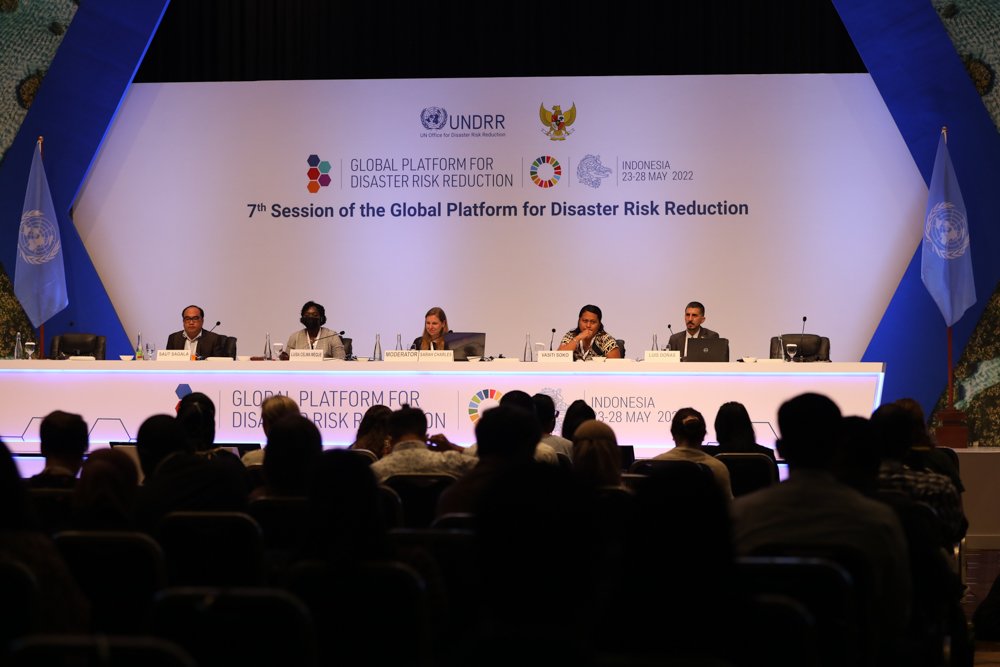

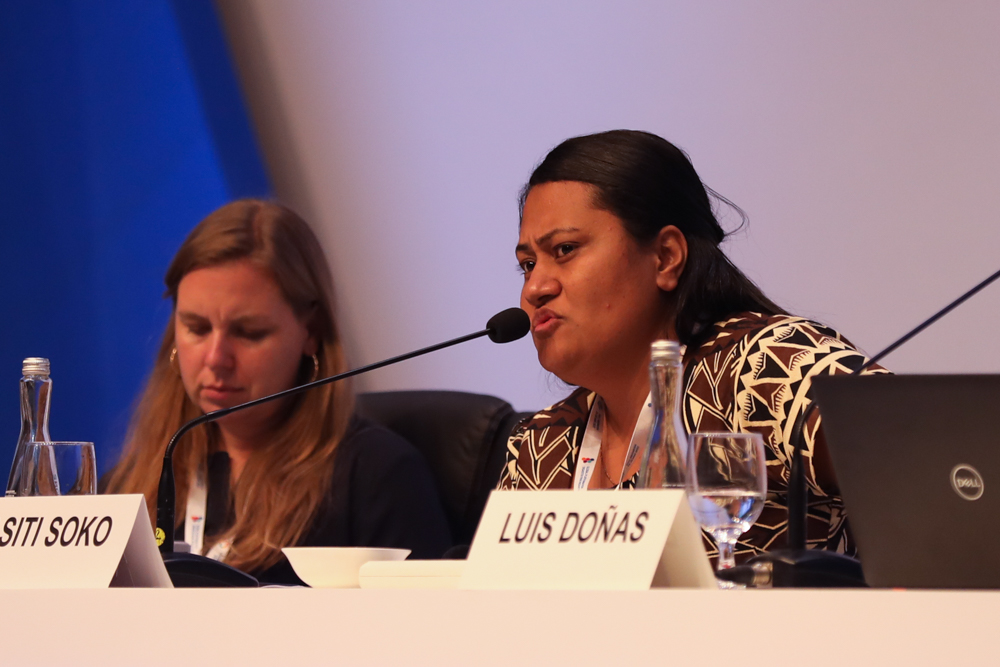
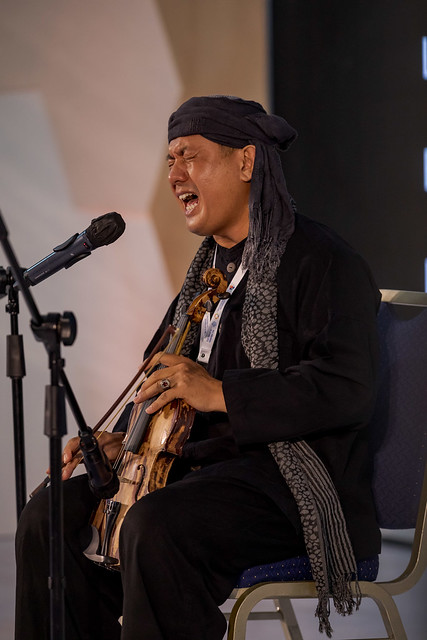
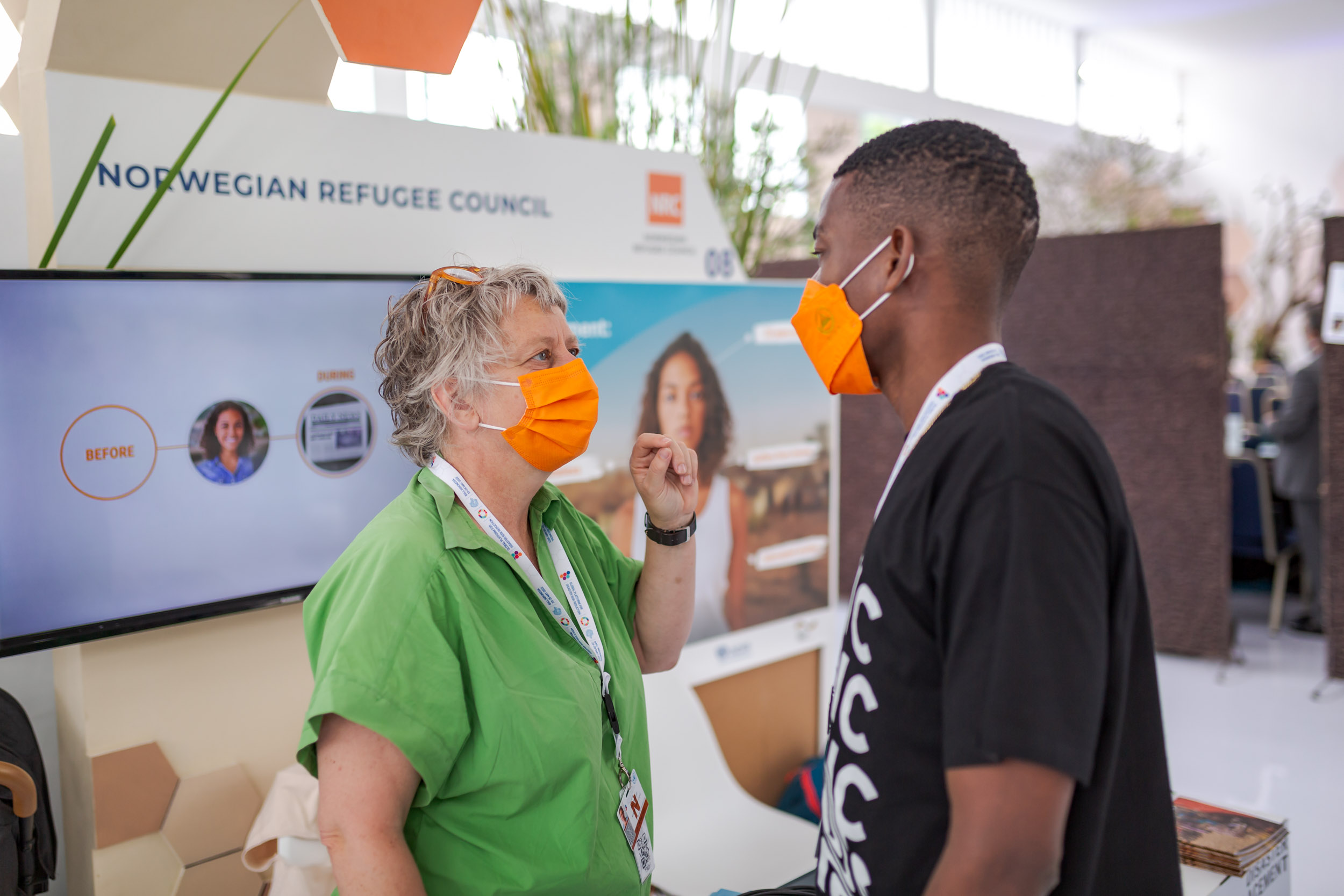
Read the Platform on Disaster Displacement Policy Brief and Key Messages for GP22
